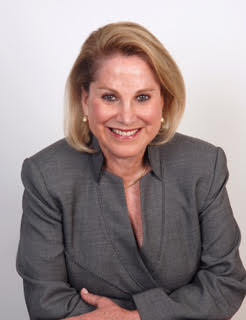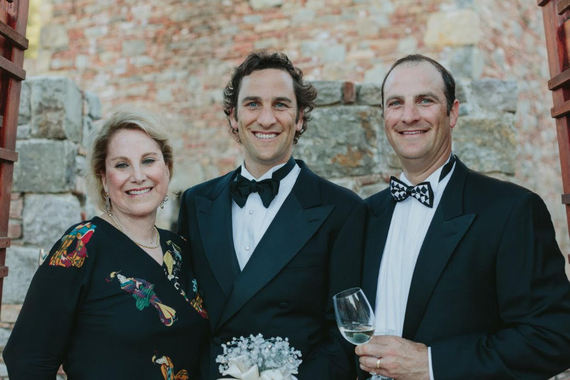If money's the goal then there aren't many female founders who've made it in Silicon Valley.
Search Google for "richest women in tech" and the women who come up are likely to be Meg Whitman (not a founder), Marissa Meyer (not a founder) or Sheryl Sandberg (again, not a founder).
One woman you won't easily find was once one of the most celebrated female founders in the technology industry: Sandra Kurtzig.
Kurtzig started her company, ASK Computer Systems, Inc., in 1972 with $2,000 in savings. In 1981, Kurtzig launched the ASK initial public offering, making her the first woman to bring a technology company public. Eventually, ASK became a $400 million business, making Kurtzig a wealthy woman.
She is, or at least was, an industry icon.
But by today's standards, where "success" is measured in billions, Kurtzig's experience might not be considered "successful" enough and that has her riled up.
"The heart of the issue is what defines success?" Kurtzig said.
Perhaps, she argues, money isn't the only goal.
"I don't think there is any proof that somebody who's a billionaire has any more happiness than someone who has $100 million or $10 million or $1 million," said Kurtzig. "The most important thing is for people to figure out what they want to do with their life, particularly their career and their family, and plan accordingly."
For Kurtzig that meant becoming an entrepreneur.
Seizing the Opportunity
Kurtzig graduated from UCLA with a degree in math in the late 1960s and then went on to Stanford University to secure her masters in aeronautical engineering. In 1970, she became one of the few women in sales at General Electric, but she worried she would have a limited career path and knew she wanted children.
When one of her customers complained he didn't have a way to track inventory, Kurtzig realized there must be other companies with similar problems. She agreed to write a software program that would allow him to track production and management of his inventory. With that, ASK was born.
"I never intended to build ASK into one of the largest companies in the world," said Kurtzig. "The truth is, I decided to start a company so I could work part-time and care for my family. But I believe luck is seizing opportunities and that's exactly what I did."
Being Authentic
It is hard to understand these days how truly groundbreaking Kurtzig choices and actions were. First, being an entrepreneur in the 1970s was the path of "the guy who didn't fit in anywhere" Kurtzig writes in her business memoir, CEO: Building A $400 Million Company From The Ground Up.
And being a woman? She goes on to write, "A woman starting her own company was considered a pariah, a piranha, or both."
As for being a female coder who wanted to found a software company?
Well, that was so far off the field Kurtzig decided the only thing to do was to use all of it to her advantage. She created sales flyers with headlines that read, "Warning: Dangerous Woman on the Loose."
A petite woman who at the time had a mane of red hair, she arrived at new customers' offices with long painted nails, a bright pink briefcase and lavender business cards.
Kurtzig says of those early days, "At the very least, no prospect would forget me."
Leading by Example
Not long after Kurtzig started ASK, she became pregnant with her first son. While her peers stayed home, Kurtzig figured out how to integrate her career and her family.
She and her husband bought a rambling five bedroom house in Los Altos, California. They slept upstairs and the ASK corporate offices were downstairs.
This solution worked fine until the exploding growth of the company forced Kurtzig to make a choice. The opportunities for ASK were too great to give up so she moved the company into "real" offices and finally committed to putting her role as CEO front and center.
Within a decade after she started ASK, Kurtzig was the mother of two sons and the CEO of highly successful technology company. Confident ASK was well established, she decided to take a career pause. She retired in 1985 and spent the next four years focused on her children.
Meanwhile, the company floundered.
Kurtzig returned to ASK as CEO in 1989 at the request of the board and managed to turn it around, rebuilding her company to an all time high of $400 million in revenues. She stepped aside again in 1992. ASK was eventually acquired by Computer Associates in 1994.
While Kurtzig's plan to work part-time didn't actually pan out, she is proud of her trailblazing career as a high tech CEO and her role as mother to her two sons, Andy and Ken. To her, that combination is the marker of true success.
Kurtzig must have done something right. Her sons are now both themselves entrepreneurs.
Andy is the founder and CEO of JustAnswer, a questions and answer site that claims 26 million visitors a month. Her younger son, Ken, started iReuse, a software company that helps businesses run sustainability programs and, in 2013, founded cloud software maker Arizay.
Next Generation Role Model
These days Kurtzig is breaking new ground again. In 2010, at the age of 65, she launched her second company, Kenandy, named for her two sons. This time she aims to debunk the notion that older people can't be successful entrepreneurs.
"You can start a business at any age," she said in a recent interview. "Tech really allows anybody at any age or any sex or cultural background to really get involved and start a company."
Kenandy, an enterprise resource software program (essentially a cloud-based version of ASK), raised over $33 million in venture capital. It now has nearly 100 employees and has a growing list of customers including Big Heart Pet Brands with annual sales of $2.3 billion.
While Kurtzig has recently announced her retirement from this second company, she believes that Kenandy will be even more successful than her first, making Kurtzig, again, a very rich woman.
This kind of "success" aside, Kurtzig is concerned all of the messaging around money in Silicon Valley, derails the real rewards of entrepreneurship: freedom and independence.
While she is a friend and fan of Sheryl Sandberg, Kurtzig worries some of the "Lean In" messaging won't help ambitious women who want to be mothers to follow their true path. She argues that entrepreneurship offers women the best of all worlds.
"Why sit at the table," said Kurtzig, "when you can buy it?"
A version of this article originally appeared in Smashd

